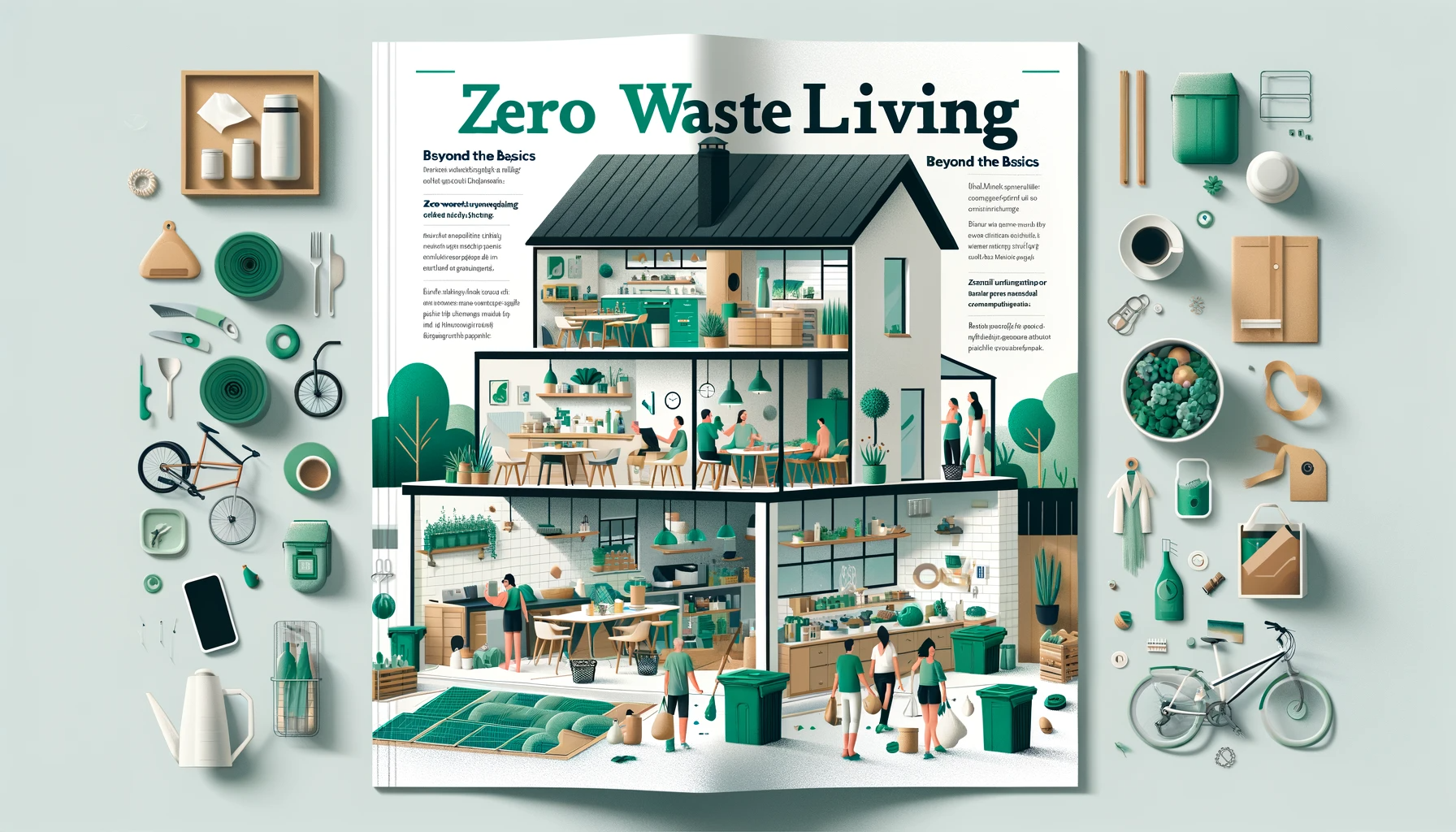As the global waste crisis deepens, many have turned to a zero waste lifestyle as a solution. While most are familiar with its elementary practices, like using reusable bags or ditching single-use plastics, zero waste living offers more profound, systemic approaches. This article delves into the advanced strategies of zero waste living.
1. Comprehensive Composting While many zero-wasters compost fruit and vegetable scraps, few consider composting items like hair, pet fur, or natural-fiber clothing. Studies show that around 60% of household waste is organic, much of which is compostable1.
2. Digital Minimalism In our digital age, e-waste is rising alarmingly. Adopting digital minimalism—buying fewer gadgets, extending the lifespan of electronic devices, and recycling e-waste responsibly—can significantly reduce one’s digital carbon footprint2.
3. DIY Personal Care and Cleaning Products Homemade products reduce packaging and unknown chemicals in daily routines. Simple ingredients like vinegar, baking soda, and essential oils can replace numerous commercial products3.
4. Sustainable Period Products Women can opt for reusable menstrual products like cloth pads, menstrual cups, or period underwear, which are both eco-friendly and cost-effective in the long run4.
5. Analyzing the Supply Chain Understanding the lifecycle of products, from raw material extraction to disposal, can aid in making sustainable purchasing decisions. Platforms like the Good On You app provide insights into the sustainability of different brands5.
6. Zero Waste Gifting Choosing experiences over physical gifts or gifting consumables can avoid unnecessary waste. Alternatively, hand-made or second-hand items offer personal and sustainable gift options6.
7. Community Involvement Engaging in community clean-up events, attending zero waste workshops, or joining local sustainability groups can amplify individual efforts7.
8. Advocacy and Policy Influence Lobbying local representatives for sustainable policies, supporting bans on single-use plastics, or campaigning for extended producer responsibility can drive systemic change8.
Conclusion Advanced zero waste living transcends superficial practices. By integrating these deeper strategies, individuals can drive a more profound change, fostering a sustainable future.
References:
- U.S. Environmental Protection Agency (EPA). (2019). Advancing Sustainable Materials Management: Facts and Figures.
- Baldé, C.P., Forti V., Gray, V., Kuehr, R., Stegmann,P. (2017). The Global E-waste Monitor – 2017. United Nations University (UNU).
- Johnson, B. (2019). Zero Waste Home: The Ultimate Guide to Simplifying Your Life by Reducing Your Waste. Scribner.
- Weiss, M., & Malone, E. (2019). Sustainable Menstruation: A Period Piece. Environmental Research Letters.
- Good On You. (2021). How We Rate.
- Lepinski, K. (2020). 101 Ways to Go Zero Waste. Countryman Press.
- Wasteless Planet. (2019). The Benefits of Community Involvement in Zero Waste Initiatives.
- Zero Waste Europe. (2018). Extended Producer Responsibility: A key policy for zero waste.


